Thousands of people lost their homes due to Hurricane Dorian.
Salvation Army hurricane relief operations in the Bahamas continue to grow with plans to expand further as people return to the Abaco Islands. Presently, International Emergency Services teams, partnering with local Salvationists and volunteers, are based in Nassau, the country’s capital, and Freeport, on the island of Grand Bahama.
The Bahamian government reports that to date 53 people are known to have been killed by Hurricane Dorian’s devastation, with 608 individuals still listed as missing, although this number may not include all undocumented migrants. More than 1,500 people remain in shelters in Nassau and at least 3,000 are living with host families.
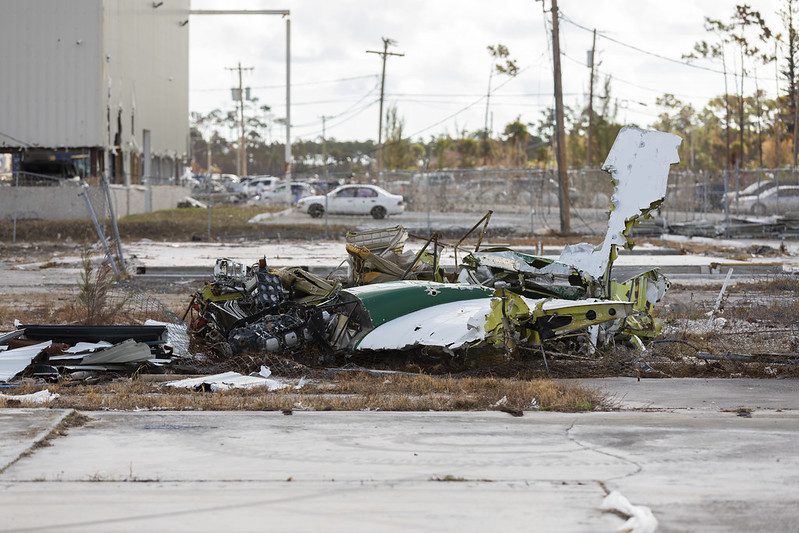
The Salvation Army’s divisional headquarters (DHQ) in Nassau currently supports four main components: overall logistics and coordination throughout the islands, coordination with the USA mainland, support to shelters throughout Nassau and relief support for the Abaco Islands.
Distribution of essential items to shelters continues, and The Salvation Army provided drinks during school registration held at a sports stadium. Seven evacuees continue to be cared for at The Salvation Army’s Grants Town facility, and the DHQ site is a central point of assistance for Dorian survivors and evacuees.
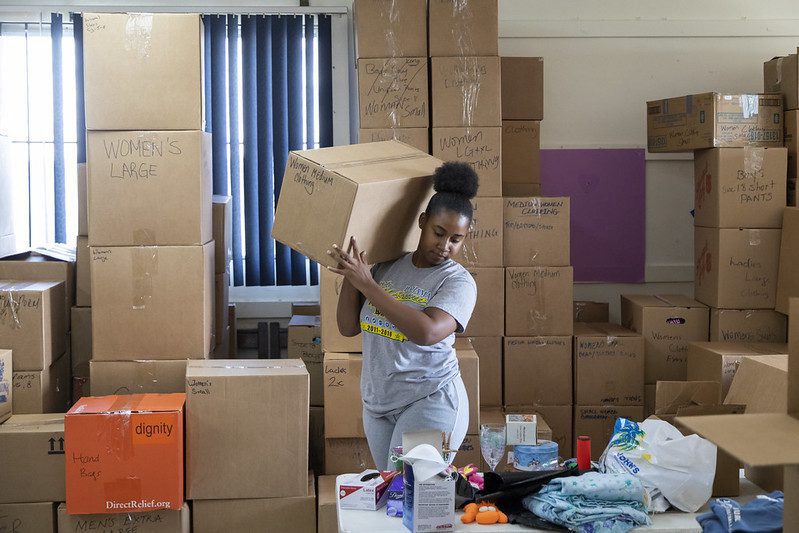
As part of the overall relief effort, and to avoid duplication of assistance, Salvation Army team members are attending numerous government-run coordination meetings in Nassau regarding logistics, washing, food, shelter and psycho-social assistance.
In Freeport, The Salvation Army is currently participating in the response for survivors across Grand Bahama, distributing food, cleaning supplies, baby supplies, hygiene items, water and clothes through the Freeport Corps and supplying essential goods to other distribution points and through community networks. In addition, emergency personnel have begun regular distributions to communities east of Freeport, where door-to-door visits are part of a program to offer practical and emotional support. Supplies are also being provided to neighborhood distribution points, and to partner organizations with a more regular presence on the east of the island (such as the UK charity Team Rubicon).
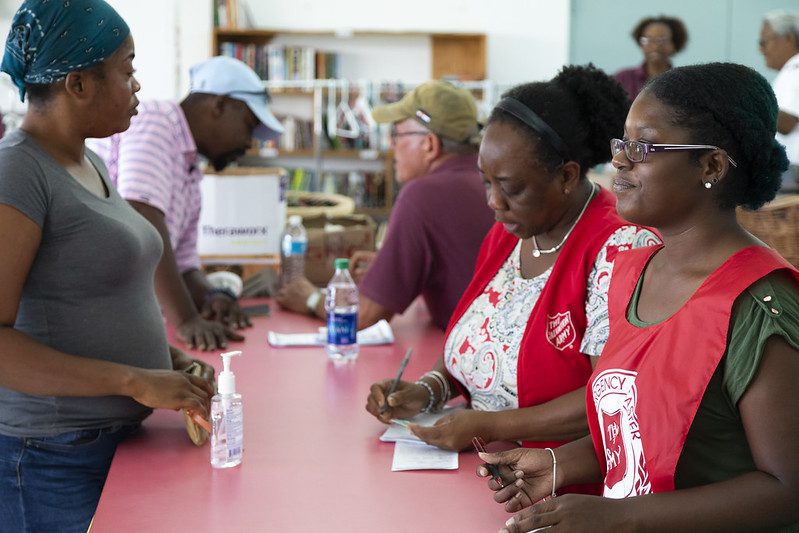
Inhabitants of the Abaco Islands, most of whom were evacuated after Dorian struck, are slowly returning, although some are going back only for short periods to salvage belongings. The Salvation Army has partnered with numerous groups—government and non-governmental organizations—to distribute relief supplies, including food, water and hygiene items, throughout the islands.
Salvation Army team members have made numerous trips to Abaco to coordinate with local community and partner organizations to identify ongoing needs. Bulk relief supplies are being transported, utilizing World Food Programme-chartered vessels and storage in Marsh Harbour, to prepare for when larger numbers of people return to the islands.
Salvation Army teams across the Bahamas are grateful for the prayers and offers of practical support from people throughout the world. Continuing support will be needed, especially during the coming weeks as people return to the Abaco Islands where, since most homes were destroyed, many may have to live in temporary accommodations while rebuilding begins.
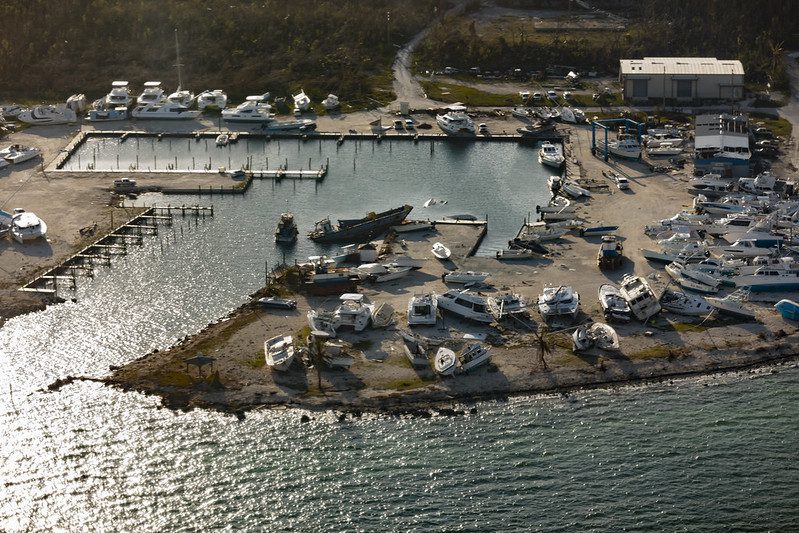
IHQ Communications
From reports by the Caribbean Territory








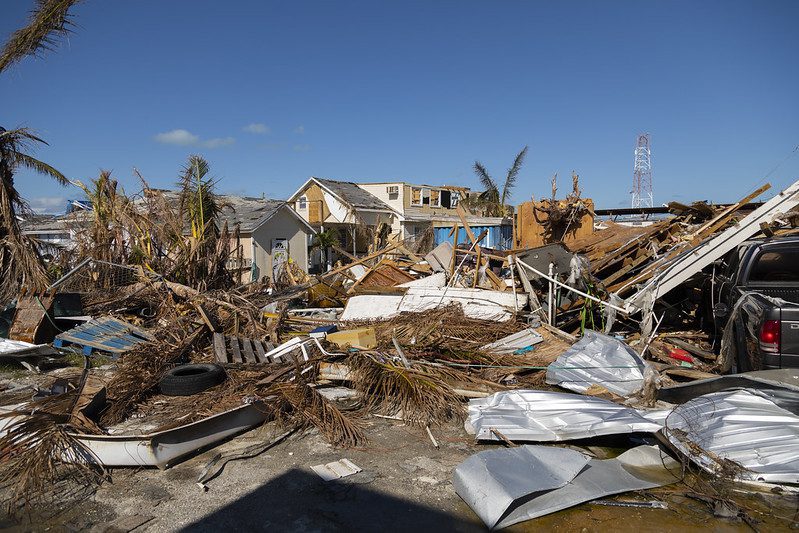




I am certified as a Salvation Army volunteer. I speak and understand Spanish. I am a retired special ed teach. I would like to volunteer for transportation/delivery, food distribution/service, baby sitting, supply driver, transportation, data entry etc.
I am currently mildly physically handicapped. I have to use a cane to walk.
Hi Irene,
Thank you for your message and interest in volunteering. Please email new.frontier@usw.salvationarmy.org and provide your city, state and zip code so we can connect you to the correct location.
Best,
Cory
I am certified as a Salvation Army volunteer. I speak and understand Spanish. I am a retired special ed teach. I would like to volunteer for transportation/delivery, food distribution/service, baby sitting, supply driver, transportation, data entry etc.
I am currently mildly physically handicapped. I have to use a cane to walk.
Hi Irene,
Thank you for your message and interest in volunteering. Please email new.frontier@usw.salvationarmy.org and provide your city, state and zip code so we can connect you to the correct location.
Best,
Cory